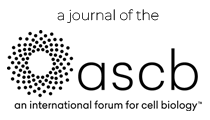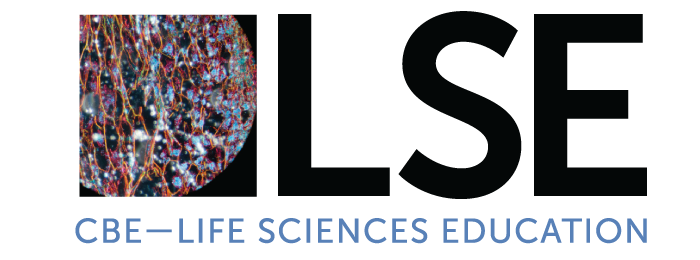References
Theoretical underpinnings
Constructivism
- Bodner, G.M. (1986). Constructivism: A theory of knowledge. Journal of Chemical Education, 63, 873-878.
- Driver, R., Asoko, H., Leach, J., Mortimer, E., & Scott, P. (1994). Constructing scientific knowledge in the classroom. Educational Researcher, 23(7), 5–12.
- Prince, M. J., & Felder, R. M. (2006). Inductive teaching and learning methods: Definitions, comparisons, and research bases. Journal of Engineering Education, 95(2), 123-138.
- Amineh, R. J., & Asl, H. D. (2015). Review of constructivism and social constructivism. Journal of Social Sciences, Literature and Languages, 1(1), 9-16.
Cognitive Load Theory
- Sweller, J. (1988). Cognitive load during problem solving: Effects on learning. Cognitive Science, 12(2), 257-285.
- Sweller, J., Van Merriënboer, J. J., & Paas, F. (2019). Cognitive architecture and instructional design: 20 years later. Educational Psychology Review, 31(2), 261-292.
Desirable Difficulties
- Dunlosky, J., Rawson, K. A., Marsh, E. J., Nathan, M. J., & Willingham, D. T. (2013). Improving students’ learning with effective learning techniques: Promising directions from cognitive and educational psychology. Psychological Science in the Public Interest, 14(1), 4-58.
- Schmidt, R. A., & Bjork, R. A. (1992). New conceptualizations of practice: Common principles in three paradigms suggest new concepts for training. Psychological Science, 3(4), 207-218.
- Zepeda, C. D., Martin, R. S., & Butler, A. C. (2020). Motivational strategies to engage learners in desirable difficulties. Journal of Applied Research in Memory and Cognition, 9(4), 468-474.
Activating, Differentiating, and Encoding Knowledge
- DeCaro, M. S., & Rittle-Johnson, B. (2012). Exploring mathematics problems prepares children to learn from instruction. Journal of Experimental Child Psychology, 113(4), 552-568.
- Schwartz, D. L., Chase, C. C., Oppezzo, M. A., & Chin, D. B. (2011). Practicing versus inventing with contrasting cases: The effects of telling first on learning and transfer. Journal of Educational Psychology, 103(4), 759.
Learner Agency and Preparation for Future Learning
- Belenky, D. M., & Nokes-Malach, T. J. (2012). Motivation and transfer: The role of mastery-approach goals in preparation for future learning. Journal of the Learning Sciences, 21(3), 399-432.
- Schwartz, D. L., & Martin, T. (2004). Inventing to prepare for future learning: The hidden efficiency of encouraging original student production in statistics instruction. Cognition and Instruction, 22(2), 129-184.
Instructional choices: Instruction followed by problem-solving
Peer-led Team Learning (PLTL)
- Eberlein, T., Kampmeier, J., Minderhout, V., Moog, R. S., Platt, T., Varma‐Nelson, P., & White, H. B. (2008). Pedagogies of engagement in science. Biochemistry and molecular biology education, 36(4), 262-273.
- Frey, R. F., Fink, A., Cahill, M. J., McDaniel, M. A., & Solomon, E. D. (2018). Peer-led team learning in general chemistry I: Interactions with identity, academic preparation, and a course-based intervention. Journal of Chemical Education, 95(12), 2103-2113.
- Knight, J. K., Wise, S. B., Rentsch, J., & Furtak, E. M. (2015). Cues matter: Learning assistants influence introductory biology student interactions during clicker-question discussions. CBE—Life Sciences Education, 14(4), ar41.
- Preszler, R. W. (2009). Replacing lecture with peer-led workshops improves student learning. CBE—Life Sciences Education, 8(3), 182-192.
- Repice, M. D., Sawyer, R. K., Hogrebe, M. C., Brown, P. L., Luesse, S. B., Gealy, D. J., & Frey, R. F. (2016). Talking through the problems: A study of discourse in peer-led small groups. Chemistry Education Research and Practice, 17(3), 555-568.
- Snyder, J. J., Sloane, J. D., Dunk, R. D., & Wiles, J. R. (2016). Peer-led team learning helps minority students succeed. PLoS Biology, 14(3), e1002398.
- Wilson, S. B., & Varma-Nelson, P. (2016). Small groups, significant impact: A review of peer-led team learning research with implications for STEM education researchers and faculty. Journal of Chemical Education, 93(10), 1686-1702.
- https://sites.google.com/view/pltl
- https://pltlis.org/
Worked examples
- Atkinson, R.K., Derry, S.J., Renkl, A., and Wortham, D. (2000). Learning from examples: Instructional principles from the worked examples research. Review of Educational Research, 70 (2), 181-214.
- Halmo, S.A., Sensibaugh, C.A., Reinhart, P. Stogniy, O., Fiorella, L., and Lemons, P.P. (2020). Advancing the guidance debate: Lessons from educational psychology and implications for biochemistry learning. CBE—Life Sciences Education, 19: ar41, 1-14.
- Kalyuga, S., Chandler, P., and Sweller, J. (2001) Learner experience and efficiency of instructional guidance. Educational Psychology, 21(1), 5-23.
- Nievelstein, F., van Gog, T., van Dijck, and Boshuizen, H.P.A. (2013) The worked example and expertise reversal effect in less structured tasks: Learning to reason about legal cases. Contemporary Educational Psychology, 38, 118-125.
- Renkl, A., and Atkinson, R.K. (2003). Structuring the transition from example study to problem solving in cognitive skill acquisition: A cognitive load perspective. Educational Psychologist, 38 (1), 15-22.
- Renkl, A. (2014). Learning from worked examples: how to prepare students for meaningful problem solving. In V. A. Benassi, C. E. Overson, & C. M. Hakala (Eds.), Applying science of learning in education: Infusing psychological science into the curriculum (p. 118–130). Society for the Teaching of Psychology.
- Tuovinen, J.E., and Sweller, J. (1999). A comparison of cognitive load associated with discovery learning and worked examples. Journal of Education Psychology, 91 (2), 334-341.
Instructional choices: Problem-solving followed by instruction
Productive Failure
- Chowrira, S. G., Smith, K. M., Dubois, P. J., & Roll, I. (2019). DIY productive failure: boosting performance in a large undergraduate biology course. NPJ Science of Learning, 4(1), 1-8.
- Jacobson, M. J., Markauskaite, L., Portolese, A., Kapur, M., Lai, P. K., & Roberts, G. (2017). Designs for learning about climate change as a complex system. Learning and Instruction, 52, 1-14. doi:10.1016/j.learninstruc.2017.03.007a.
- Kapur, M. (2008). Productive failure. Cognition and Instruction, 26(3), 379–424.
- Kapur, M. (2011) A further study of productive failure in mathematical problem solving: unpacking the design components. Instructional Science, 39, 561-579.
- Kapur, M. (2016). Examining productive failure, productive success, unproductive failure, and unproductive success in learning. Educational Psychologist, 51(2), 289-299.
- Loibl, K., & Rummel, N. (2014). Knowing what you don’t know makes failure productive. Learning and Instruction, 34, 74-85.
- Loibl, K., Roll, I., & Rummel, N. (2017). Towards a theory of when and how problem solving followed by instruction supports learning. Educational Psychology Review,29(4), 693-715.
Process-oriented, guided-inquiry learning (POGIL)
- POGIL Project
- Brown, P. J. (2010). Process-oriented guided-inquiry learning in an introductory anatomy and physiology course with a diverse student population. Advances in Physiology Education, 34(3), 150-155.
- Erduran S., Simon S. and Osborne J., (2004). TAPping into argumentation: developments in the application of Toulmin’s argument pattern for studying science discourse, Sci. Educ., 88(6), 915–933.
- Lawson, Anton E., Abraham, M.R., & Renner, J.W. (1989). A Theory of Instruction: Using the Learning Cycle To Teach Science Concepts and Thinking Skills. NARST Monograph, Number One, 1989.
- Moog R. (2014). “Process oriented guided inquiry” In M. A. McDaniel, R. F. Frey, S. M. Fitzpatrick, and H.L. Roediger (Eds), Integrating cognitive science with innovative teaching in STEM disciplines [E-reader version], 147-166.
- Moon, A., Stanford, C., Cole, R., & Towns, M. (2016). The nature of students’ chemical reasoning employed in scientific argumentation in physical chemistry. Chemistry Education Research and Practice, 17(2), 353-364.
- Moon, A., Stanford, C., Cole, R., & Towns, M. (2017). Decentering: A characteristic of effective student–student discourse in inquiry-oriented physical chemistry classrooms. Journal of Chemical Education, 94(7), 829-836.
- Rodriguez, J. M. G., Hunter, K. H., Scharlott, L. J., & Becker, N. M. (2020). A review of research on process oriented guided inquiry learning: Implications for research and practice. Journal of Chemical Education, 97(10), 3506-3520.
- Sevian H. and Talanquer V., (2014). Rethinking chemistry: a learning progression on chemical thinking. Chem. Educ. Res. Pract., 15(1), 10–23.
- Staver, J.R., & Bay, M (1987). Analysis of the Project Synthesis Goal Cluster Orientation and Inquiry Emphasis of Elementary Science Textbooks. Journal of Research in Science Teaching, 24, 629-643.
- Vincent-Ruz, P., Meyer, T., Roe, S. G., & Schunn, C. D. (2020). Short-term and long-term effects of POGIL in a large-enrollment general chemistry course. Journal of Chemical Education, 97(5), 1228-1238.
- Walker, L., & Warfa, A. R. M. (2017). Process oriented guided inquiry learning (POGIL®) marginally effects student achievement measures but substantially increases the odds of passing a course. PLoS One, 12(10), e0186203.
Contrasting cases
- Glogger-Frey, I., Fleischer, C., Gruny, L., Kappich, J., and Renkl, A. (2015) Inventing a solution and studying a worked solution prepare different for learning from direct instruction. Learning and Instruction, 39, 72-87.
- Jarosz, A.F., Goldenberg, O., and Wiley, J. Learning by invention: Small group discussion activities that support learning in statistics. Discourse Processes, 54, 285-302, 2017.
- Kuo, E. and Wieman, C.E. (2016). Toward instructional design principles: Inducing Faraday’s law with contrasting cases. Physical Review Physics Education Research, 12, 010128.
- Newman, P.M., and DeCaro, M.S. (2019). Learning by exploring: How much guidance is optimal? Learning and Instruction, 62, 49-63.
- Roelle, J. and Berthold, K. (2015). Effects of comparing cases on learning from subsequent explanations. Cognition and Instruction, 33, 199-225.
- Schwartz, D. L., Chase, C. C., Oppezzo, M. A., & Chin, D. B. (2011). Practicing versus inventing with contrasting cases: The effects of telling first on learning and transfer. Journal of Educational Psychology, 103(4), 759-775. doi:10.1037/a0025140.
- Shemwell, J.T., Chase, C.C., and Schwartz, D.L. (2015). Seeking the general explanation: A test of inductive activities for learning and transfer. Journal of Research in Science Teaching, 52(1), 58-83.
Problem-based learning
- Allen, D., and Tanner, K. (2003). Approaches to cell biology teaching: Learning content in context—problem-based learning. Cell Biology Education 2, 73-81.
- Anderson, W.L., Mitchell, S.M., and Osgood, M.P. (2005). Comparison of student performance in cooperative learning and traditional lecture-based biochemistry classes. Biochemistry and Molecular Biology Education, 33, 387-393.
Assessment choices
- Barnett, S.M. and Ceci, S.J. (2002). When and where do we apply what we learn? A taxonomy for far transfer. Psychological Bulletin, 128: 612-637.
- Belenky, D. M., & Nokes-Malach, T. J. (2012). Motivation and transfer: The role of mastery-approach goals in preparation for future learning. Journal of the Learning Sciences, 21(3), 399-432.
- Frey, R.F., McDaniel, M.A., Bunce, D.M., Cahill, M.J., and Perry, M.D. (2020). Using students’ concept-building tendencies to better characterize average-performing student learning and problem-solving approaches in general chemistry. CBE—Life Sciences Education, 19: ar42, 1-17.
- McDaniel, M.A., Cahill, M.J., Frey, R.F., Rauch, M., Doele, J., Ruvolo, D., and Daschbach, M.M. (2018). Individual differences in learning exemplars versus abstracting rules: Associations with exam performance in college science. Journal of Applied Research in Memory and Cognition, 7: 241-251.
- Micari, M. & Pazos, P. (2021). Beyond grades: improving college students’ social-cognitive outcomes in STEM through a collaborative learning environment. Learning Environments Research, 24(1), 123-136.
- Taylor, J. L., Smith, K. M., van Stolk, A. P., & Spiegelman, G. B. (2010). Using invention to change how students tackle problems. CBE—Life Sciences Education, 9(4), 504-512.









